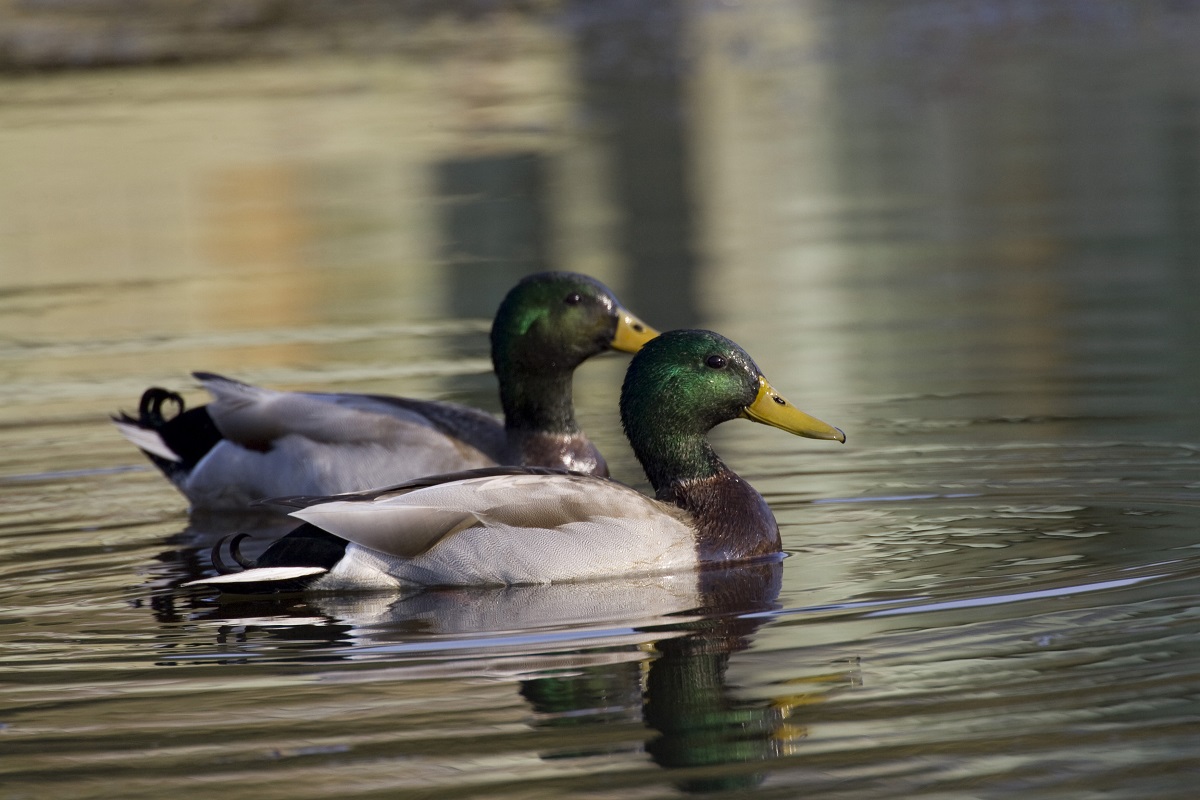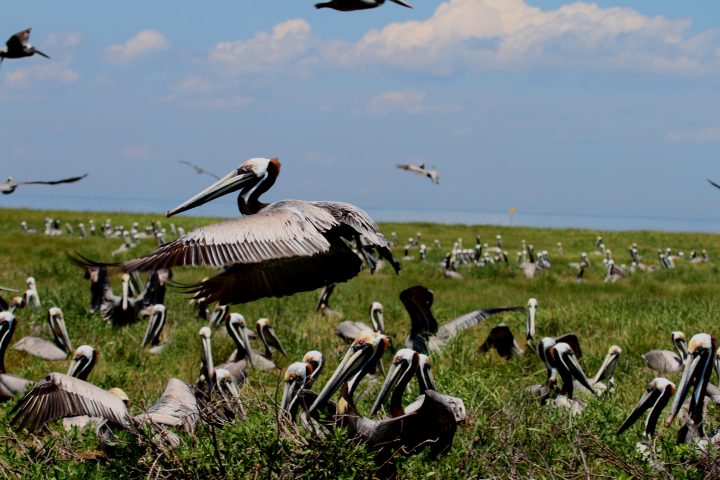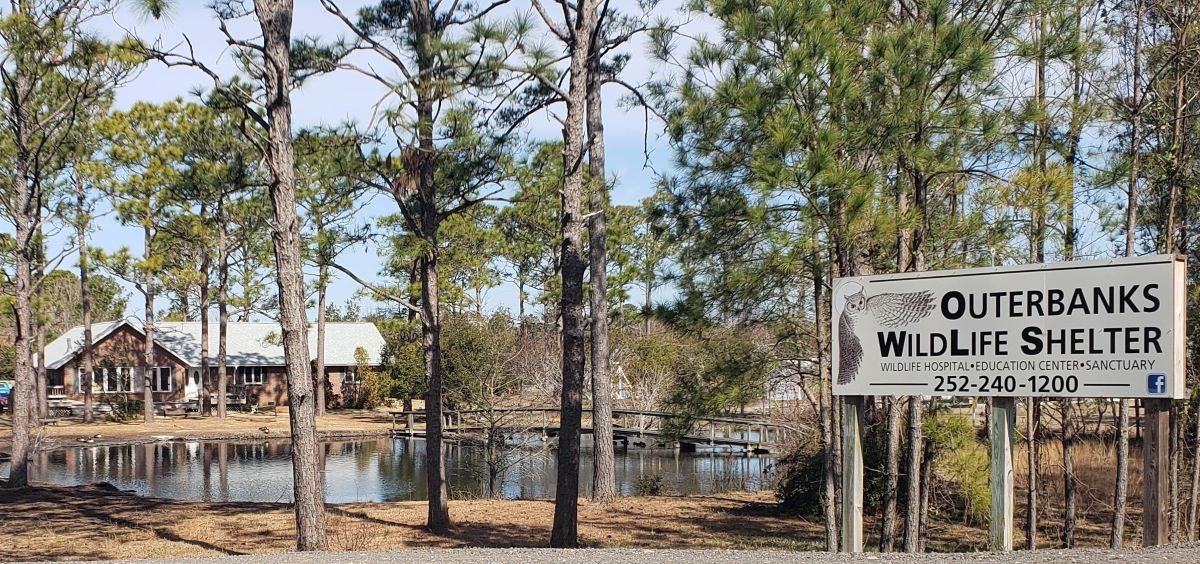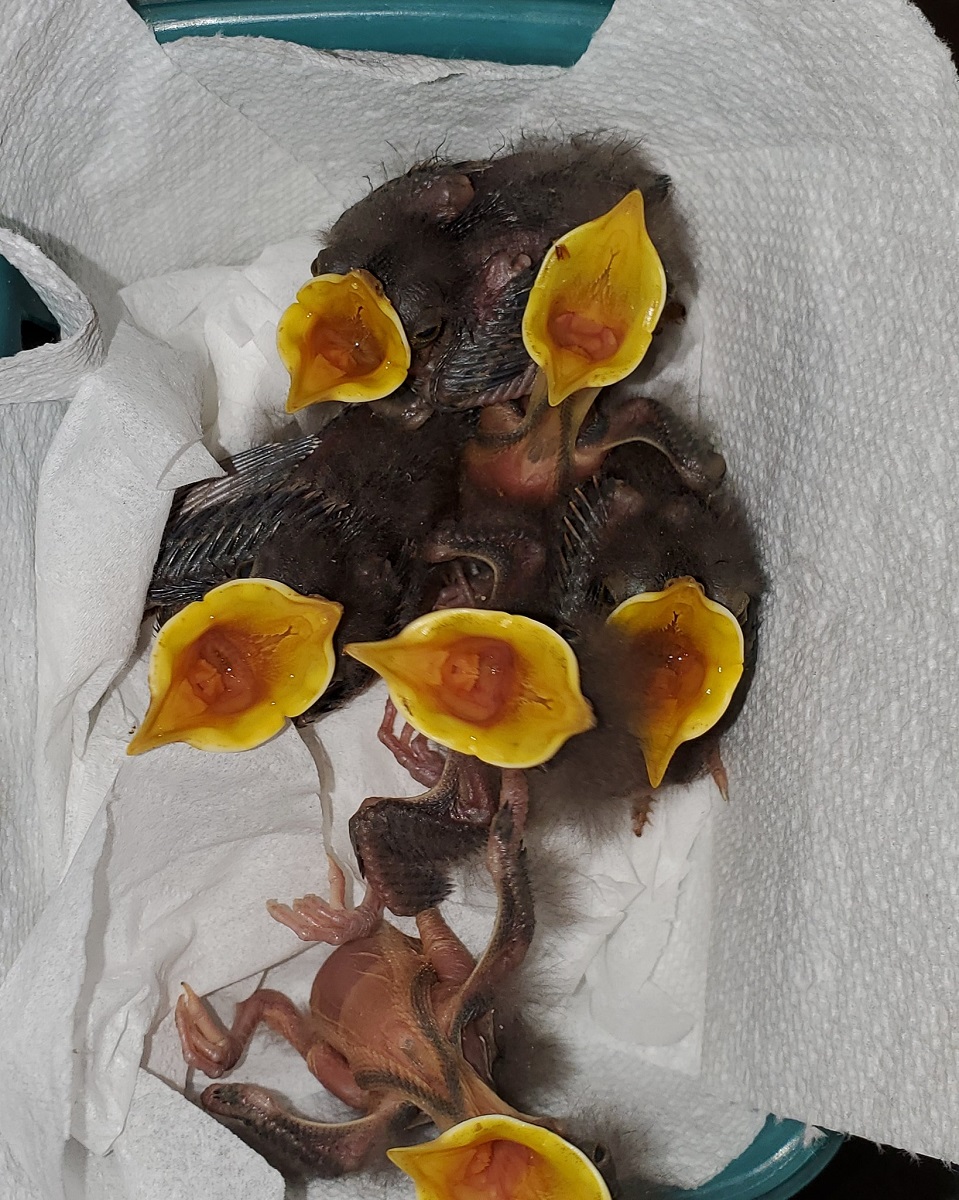Highly infectious virus spreads among wild birds on coast | Coastal Review - Coastal Review Online

This story has been updated
Coastal North Carolina's wild birds and commercial poultry have not been immune to the outbreak of the highly pathogenic avian influenza. The virus, often called bird flu, can be fatal for poultry, especially backyard or commercial flocks, but doesn't appear to be a threat to humans or other animals.
While there are no reported positive cases for backyard poultry in the state, there have been hundreds of wild birds and commercial poultry with positive test results.
To help slow the spread of this virus and others from bird to bird, agriculture and wildlife officials recommend regularly cleaning bird baths and bird feeders or, if you have poultry, removing them altogether until the outbreak has passed.
"Our recommendation is if you have poultry then you should put away your bird feeders and baths as part of your strict biosecurity," Heather Overton, assistant director of the state Department of Agriculture and Consumer Services Public Affairs, told Coastal Review Thursday. The U.S. Department of Agriculture defines biosecurity as measures taken to prevent exposing viruses, bacteria, funguses, parasites, and other microorganisms that cause disease to birds, property, and people.
"If you do not own birds, then bird feeders and baths are considered low risk. However if you see dead birds then you should report them to Wildlife Resources Commission," she added.
Sarah Van de Berg, wildlife health biologist with the North Carolina Wildlife Resources Commission, explained to Coastal Review Wednesday that avian influenza can infect any bird species.
"The severity of the illness, or if they display symptoms at all, depends on the species involved and the particular subtype of the avian influenza virus. In North Carolina, avian influenza occurs naturally in our wild water birds, particularly ducks," she said. "They (wild birds) are most often asymptomatic but can spread the virus to other birds that come in contact with their oral or nasal secretions or feces. The majority of wild birds that have tested positive for highly pathogenic avian influenza in coastal North Carolina this winter have been ducks that were not displaying any signs of illness," she said.
Symptoms, when exhibited, include sudden death, lethargy, no appetite, change in eggs or production rate, swelling or purple discoloration, nasal discharge, coughing, sneezing, lack of coordination or diarrhea, according to the USDA.

As of Thursday, 762 positive wild bird samples had been detected in 33 states, with 143 of those samples in North Carolina. The U.S. Department Of Agriculture's Animal and Plant Health Inspection Service anticipates more will occur in additional states as wild bird surveillance continues into the spring. Wild bird species that tested positive in the state include mallards, American wigeon, gadwalls, American green-winged teals, Northern pintails, Northern shovelers, bald eagles, pelicans and snow geese.
Of the 29 states where the virus was detected in commercial and backyard poultry flocks, 28.81 million birds were on confirmed affected premises, according to USDA. As of April 12, there had been nine affected commercial flocks in Wayne and Johnston counties, totaling 481,400 birds affected in the state during this outbreak, but no affected backyard flocks in North Carolina have been reported.
Coastal North Carolina has seen wild bird mortalities associated with highly pathogenic avian influenza, or HPAI, particularly with bald eagles, but there has been no large mortality event that the commission was aware of, Van de Berg said.
"We have documented mortalities attributed to HPAI in a small number of bald eagles, a brown pelican, a redhead duck and a ruddy duck. The U.S. Fish and Wildlife Service has also documented a mortality in a snow goose in coastal North Carolina," she added.
Of the state's 143 documented wild bird cases, all but seven were in coastal counties. The first detected wild bird case this year was Jan. 16 in Hyde County, according to the USDA website. As of Thursday, Pamlico County had seen 74 positive detections, Beaufort County had 14, and there were 11 in Currituck County and 29 in Hyde County. Craven, Dare, Brunswick and Carteret each have had one case.
Impact on commercial, backyard poultry
Van de Berg emphasized that domestic poultry are particularly vulnerable.
"Following strict biosecurity protocols as recommended by the U.S. Department of Agriculture and the N.C. Department of Agriculture is strongly recommended. Adhering to those protocols and keeping wild birds away from domestic poultry are some of the best tools we have to keep pet and commercial poultry safe as this virus runs its course," she said.
For folks with backyard chickens, the USDA recommends moving birds to another location to thoroughly clean the coops or pens. This includes removing all old litter, manure and other debris off surfaces before scrubbing with water and detergent. Disinfectant will not work on top of manure and caked-on dirt. Rinse all surfaces carefully with water. Apply an Environmental Protection Agency-registered disinfectant effective against avian influenza virus. Let dry.
The North Carolina Department of Agriculture and Consumer Services took action earlier this month to protect commercial and backyard flocks by suspending all exhibitions, farm tours, shows, sales, flea markets, auction markets, swaps and meets pertaining to poultry and feathered fowl because of the threat of highly pathogenic avian influenza.
"This suspension is due to the continued spread of HPAI that has affected commercial and backyard flocks in numerous states, including North Carolina," State Veterinarian Mike Martin announced April 5. "We do not make this decision lightly. HPAI is a serious threat to our poultry industry and this is a precaution to help limit the introduction of the virus to backyard and commercial flocks."
While the virus is deadly for domestic poultry, the U.S. Centers for Disease Control and Prevention considers this type of HPAI virus to be low risk to humans, Van de Berg said Wednesday.
"People and other animals can, rarely, be infected with HPAI depending on the virus subtype. There have been no recorded cases of this subtype of HPAI infection in humans in North America," she said. "Care should be taken to avoid contact with wild birds and domestic poultry that are not your own and to wear disposable gloves then wash your hands thoroughly with soap and water after contacting areas that birds frequent."
Van de Berg advises backyard bird enthusiasts, rather than filling bird feeders, to plant native flowers and shrubs. "Those are healthier, more natural sources of food for our native birds and are a lower risk of contributing to the spread of diseases," she said. "If people insist on having bird seed feeders and bird baths, please maintain them properly by cleaning them out at least every two weeks, scrubbing them with a 10% bleach solution, rinsing thoroughly with water, and allowing them to dry completely before refilling."
She added that proper bird feeder maintenance, even when there's no signs of illness, is essential in helping stop the spread of many other diseases like salmonellosis, conjunctivitis and avian pox.
Shelter efforts to slow the spread
Brooke Breen, executive director of the Outer Banks Wild Life Shelter, or OWLS, at 100 Wildlife Way in Newport, told Coastal Review Thursday that the nonprofit shelter had a mallard die this year with symptoms of HPAI, but it tested negative for the virus.
When the mallard was admitted, it was weak, thin, had notable nasal discharge and was neurologically impaired. But, a variety of things can cause those symptoms, such as ingestion of poisons including heavy metals, ant killer, fertilizers, anti-freeze, concussion, prolonged starvation, heavy parasite load or ear infection. There was no obvious trauma noted during the duck's intake physical.
OWLS, a licensed wildlife rehabilitator, has had in place protocols and standards since before 2020, the first year the North Carolina Wildlife Commission allowed rabies vector species permits, which OWLS was granted, Breen said. Since the deadly canine distemper outbreak started, the shelter has been strict to avoid cross-contamination and employ aseptic cleaning. "We have euthanized several hundred raccoons and foxes with obvious symptoms. It's virtually untreatable."
With the recent outbreak of HPAI, OWLS staff have been segregating "questionable" birds of prey, ducks, geese and other wild birds, which Breen said will be treated for upper respiratory infections until they learn otherwise about the particular bird's illness.

To avoid spreading the virus in the shelter, Breen said stainless steel and glass food and water dishes have been set aside for the fowl, there are disinfectant "foot baths" to step in before and after leaving a room, and feeders are being sanitized twice a week.
The shelter is on 2.2 acres and has about 30 enclosures for wildlife on the grounds. OWLS took in about 3,500 animals in 2021. In the last three years, patient intake has doubled.
"We have a large pond, lots of rescued ducks and geese roaming freely on the property and tons of visiting birds since we are on a bunch of migration paths for thousands of avian species here in eastern North Carolina," Breen said. She added that it would be impossible to capture every bird found on the property.
"We release most of our hand-raised songbirds here at OWLS. We already have 10 or so hatchling songbirds and baby season is just starting. We raise hundreds of songbirds and raptors here," she said. Baby season began Feb. 14. For the next several months the shelter will be inundated with baby animals that have to be fed every three to four hours and are welcoming volunteers to help care for them.
but there's "plenty to do, without touching an animal," Breen said. "We have expanded so rapidly we desperately need more hands on deck" she said.
Extra hands are needed with multiple renovation projects with an onsite project manager that are currently underway, enclosure building projects, some of which can be built offsite, general repairs, gardening, laundry, dishes. The shelter, a charitable nonprofit, also needs donated items and monetary donations.
On the OWLS website needs are listed as well as ways to donate, how to volunteer, and information on scheduling a behind-the-scenes tour.

Breen said they'll continue taking precautions to prevent the spread of HPAI until the virus runs its course.
"Luckily, we were constantly washing our hands and disinfecting as ritual before COVID hit, then we upped our biosecurity by 10," she said.
Breen said that for now, they're answering the questions with what they know.
"Captive birds are more susceptible. Please use extra caution with germs if you have pet birds. Carrion feeders like eagles, hawks and possibly great-horned owls, may consume and spread it from ingesting wild-caught prey. Crows, ravens and gulls are opportunistic scavengers of carcasses," she said.
Breen said take down your feeders if you feel you should, or sanitize them thoroughly and often. "We prefer Dawn dish soap in hot water with a good scrub brush to break up all that gunky greasy biological stuff in the cracks and seams." Then, spray or dunk the entire feeder in a 10% chlorhexidine solution, which is an antiseptic, 10% chlorine bleach solution and air dry in the sun. While glass and stainless steel are best for easy cleaning, plastic is not.
"The point is don't panic. Wash everything properly and frequently, including you, your clothing, shoes, etcetera, if you have a pet bird in the house," she said. "HPAI is passed by vapor, feces, blood and by biological contamination. We will reluctantly take down our feeders if it gets worse. Some places are refusing treatment to susceptible species patients already. Please look at where the birdseed comes from."
What to do if you spot a sick bird
The public should report any unusual wild bird behavior to the North Carolina Wildlife Helpline from 8 a.m. to 5 p.m. Monday through Friday at 866-318-2401 or HWI@ncwildlife.org, to the North Carolina Department of Agriculture and Consumer Science Veterinary Division at 919-707-3250, or the North Carolina Veterinary Diagnostic Laboratory System, 919-733-3986 if farmed fowl, Breen said.
If in the Carteret County area, Breen suggests that if you see more than one bird dead in the same place, or a bird having neurological impairment, such as a constant head tilt or swimming in circles, call the shelter at 252-240-1200. "We might need the bodies for testing."
OWLS is open every day of the week from 8 a.m. to 8 p.m. starting May 1. The shelter can also be reached on social media or by emailing owls.edu@yahoo.com.
Comments
Post a Comment